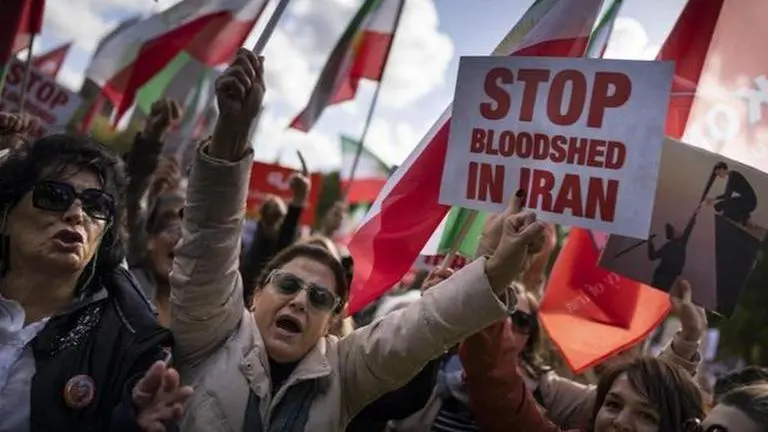Updated 31 December 2022 at 17:23 IST
Iran planning to criminalise sharing of information amid nationwide anti-govt protests
The Islamic Republic has issued harsh sentences for protesters, its government branches are covertly setting new restrictions on free speech.
- World News
- 2 min read

The Islamic Republic has issued harsh sentences for protesters, its government branches are covertly setting new restrictions on free speech. This is an effort by the Iran government to suppress the Anti-Hijab protests which have been initiated by the people of Iran in support of Mahsa Amini, a 22-year-old who died in the hospital after spending three days in a coma, reported BBC.
As per BBC, the girl was with her brother when she got arrested by the morality police, who had accused her of improper dress code. While she was at the detention center, she went into a coma and succumbed. This resulted in a wave of Iran protests in the country which has plagued the country for years.
Iran mulls criminalising sharing of information
In the latest update, the Iran government has secretly been working to make 'sharing of information' a criminal offence.
The US-based Human Rights Activists News Agency (HRANA) shared that a court in the North Khorasan province has issued a one-year sentence for 40 people arrested during protests on charges of "propaganda against the regime and spreading lies," reported local news agency.
The Association of Iranian Journalists has raised concerns over the fact that President Ebrahim Raisi's administration is coordinating with the parliament to secretly pass bills that would restrict the activities of citizen journalists and criminalise any reporting deemed critical of the regime, reported Iran International.
Advertisement
The bill has been titled “legal and judicial action against the spread of fake news in cyberspace” and the administration is simultaneously devising a bill called “the comprehensive bill of journalism,” as per Iran International reports.
The Iran government has not released more details about the bill to prevent others such as journalists from critiquing the measures. Under this new order, whomsoever would even write a simple tweet would be considered a criminal and a harsh verdict would be issued to the offender.
According to Article 286 of the Constitution, any serious disturbance in public order, causing insecurity or major damage to people or public and private property, or spread of corruption or prostitution on a large scale, is considered a ‘corruption on earth’ offence and will lead to a death sentence, reported Iran International. Earlier, the bill had been approved by the government's cultural committee and would be sent to the parliament after the cabinet's review, Culture Minister Mohammad-Mehdi Esmaeili told the local news agency.
Advertisement
Image: AP
Published By : Saumya Joshi
Published On: 31 December 2022 at 17:24 IST
